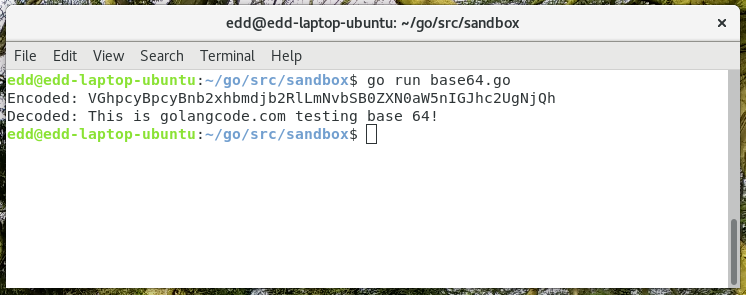Encode and Decode Strings using Base 64
·
122 words
·
1 minute read
The example below shows to how to encode and then subsequently decode a string using base 64. Doing this has many uses, one of which to safely encode byte data in structures like JSON.
We use the encoding/base64 package to do this, which takes in and returns a byte array into it’s EncodeToString and DecodeString methods.
|
|

